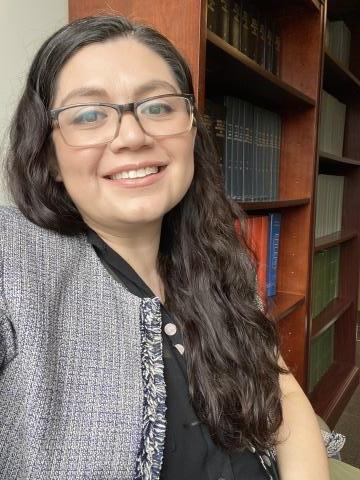
PAU Alumna Dr. Natalie Oropeza: Advancing Culturally Responsive Care for Neurodivergent and Spanish-Speaking Communities

Clinical psychology wasn’t Palo Alto University (PAU) alumna Dr. Natalie Oropeza’s first foray into helping others. She began her professional career as a special education teacher. A hallmark of her teaching career was the bond of trust she built with her students and their families. Those bonds, as well as an interest in the field of psychology, led her to pursue this new course. After attending an information session about PAU, it was clear a career in psychology was for her.
Training at La Clínica Latina, part of the University’s Gronowski Center, stands out for Dr. Oropeza as a turning point in her clinical development. An entry point to providing clinical bicultural and Spanish language services, she appreciated the emphasis PAU placed on embedding cultural humility in its clinical and academic curriculum, which prepared her for working at other institutions as a culturally responsive care provider. The issues experienced by the client population at Clínica Latina (acculturation stress, acculturation gaps, intergenerational trauma, immigration stress, socioeconomic status, and access to care obstacles) highlighted considerations to care that extended throughout not just our local community and California, but across the U.S. as well.
Practicum training at the Autism Center of Northern California and Kaiser Permanente Oakland Medical Center helped her develop expertise in diagnostic evaluations, therapies including CBT, parent coaching, psychoeducational workshops, and evidence-based consulting work in schools. She continued working in these areas while at PAU, the Indiana University School of Medicine, and now as a postdoctoral fellow at the University of California, Davis MIND (Medical Investigation of Neurodevelopmental Disorders) Institute and LEND (Leadership Education in Neurodevelopmental and Related Disabilities) Program. Currently, her rotations include co-leading a social skills program that offers curriculum-based opportunities for personal growth and skill development. The participants, she said, often note that reading body language and facial expressions has become much more difficult due to pandemic masking and virtual events. Their tip for us? “You really need to focus on the eyebrows!”
Trust has continued to be a theme for Dr. Oropeza’s work with Spanish speaking communities. Through a fellowship, she is able to be supervised in Spanish which furthers her language skills in diagnostic evaluations. Project ECHO Autism is another program she is part of. It provides six-monthly virtual sessions with each session including an expert-delivered didactic and a case-based discussion. The case discussion includes evidence based recommendations for participants from the United States, Latin America, and Spain. These partnerships allow providers and family members to take new knowledge back to their communities and clinical teams, while leaving the U.S. based teams with relevant information as well. Dr. Oropeza offers that, “Cultural translation is just as important as translating materials from English to Spanish” in many ways that allow for understanding, building trust, and skill comprehension.
As we enter the 2023 commencement period for PAU students, Dr. Oropeza recommends reaching out to mentors for guidance and career opportunities. It’s important to practice self-advocacy while also reaching out for help and advice, she says. “Build yourself a village of your people who will guide and support you. Most importantly, people connect you to more people, so don’t be afraid to network!”
